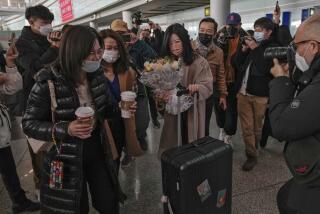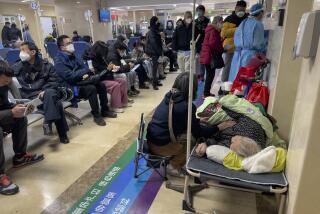Fear spreads throughout China as officials take unprecedented measure to stop coronavirus
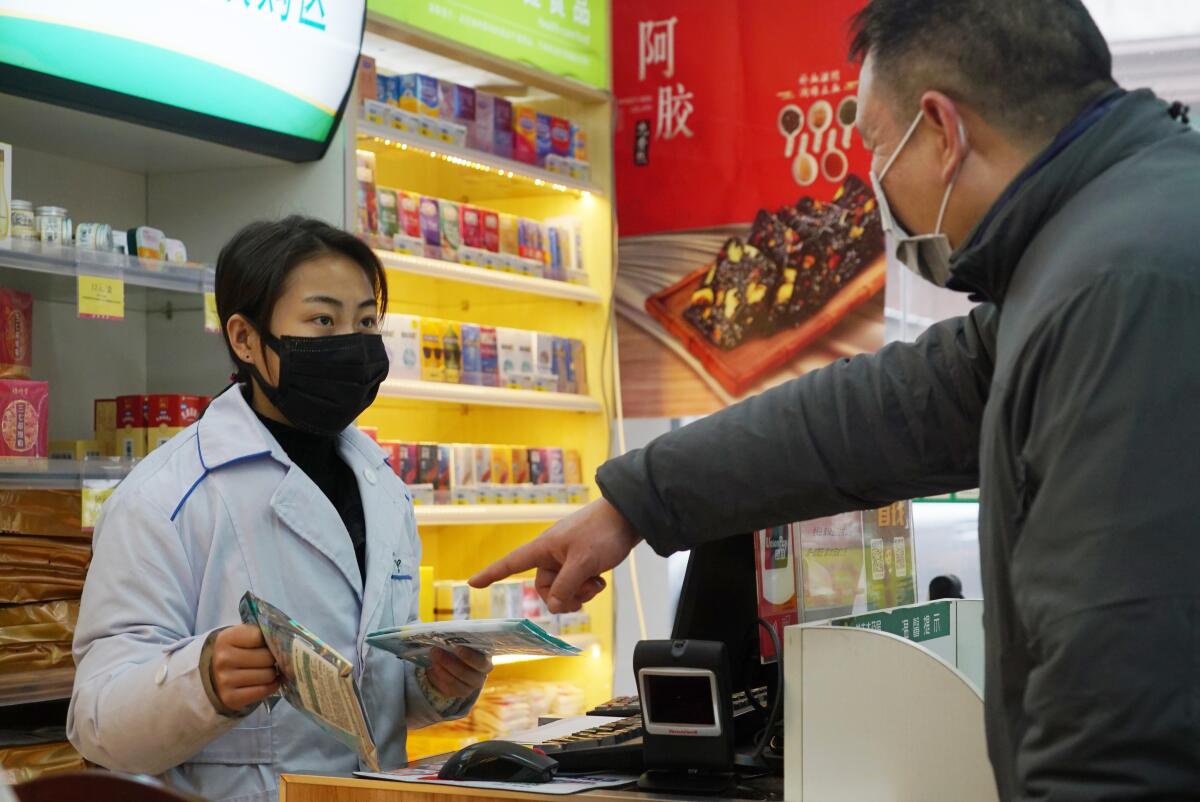
BEIJING — As Chinese officials take unprecedented measures to contain the spread of a new respiratory virus of unknown potency, 33 million people at the epicenter of the outbreak are under lockdown and Lunar New Year celebrations around the country have been canceled.
Despite the health crisis, millions of people have traveled to their hometowns or abroad for the holiday and will eventually return to urban areas, heightening concerns that the coronavirus, which has killed 26 people and radiated a sense of unease around the world, will take root beyond the central Chinese province of Hubei.
In Hubei’s capital, Wuhan, a city of 11 million where the outbreak appears to have originated at a seafood and wildlife market, all air, train and bus transportation ground to a halt, with nine surrounding cities under similar lockdowns. Surgical masks were mandatory when venturing into public, but supplies were running out, trapping people in their homes.
On Thursday, the World Health Organization stopped short of declaring the outbreak a global health emergency, citing the small number of cases outside China and the strong efforts by the Chinese government to curb the spread.
The decision “should not be taken as a sign that WHO does not think the situation is serious or that we’re not taking it seriously. Nothing could be further from the truth,” WHO Director General Tedros Adhanom Ghebreyesus said. “WHO is following this outbreak every minute of every day.”
Stemming the spread of the coronavirus is a crucial test for Chinese President Xi Jinping, who has consolidated his power domestically amid growing tensions with the U.S. over trade and other issues. In 2002 and 2003, China was slow to respond to the SARS virus, which killed nearly 800 people, affected 8,000 and spread to more than a dozen countries.
The coronavirus disrupted one of the largest holiday migrations in the world, leaving many Chinese stranded with suitcases while scrolling for news updates. On the social media platform Weibo, Wuhan residents described living in a state of siege, with dwindling food supplies at home and fears that running out of surgical masks would prevent them from going out.
“Three people are in our family. All we have left are two small baby cabbages, two tomatoes, two potatoes, two pounds of meat, six eggs, one pound of frozen dumplings and five bags of instant noodles,” wrote a Wuhan resident. “Got to hold up for at least three days, and hopefully things will get better. ... The main thing is we can’t get any masks, so we are afraid of going out.”
So far, most patients stricken with the pneumonia-like illness have had connections to Wuhan. Most of the 25 deaths occurred in Hubei province, and most of those who died were older than 50. More than 600 cases have been confirmed, mostly in Hubei but also in Beijing, Shanghai and other parts of China, as well as Thailand, Japan, Taiwan, South Korea and elsewhere.
A case has been reported in Washington state, and a traveler from Mexico arriving at Los Angeles International Airport was taken to a hospital early Thursday for evaluation.
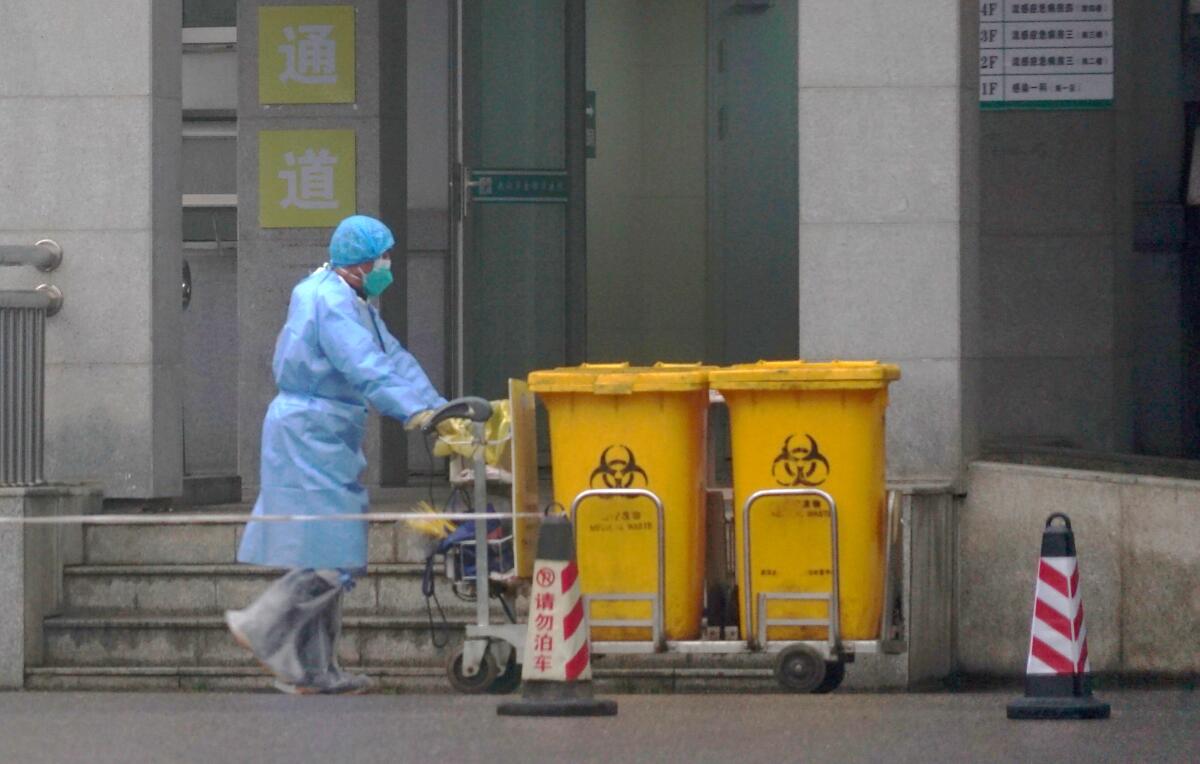
Much is still unknown about the previously unseen coronavirus, which has a crown-like shape under a microscope and was initially transmitted from animals to humans. The coronavirus family includes SARS.
Chinese health officials said this week that they are still determining the severity of the illness and its contagiousness, though they believe it can be transmitted from person to person, with healthcare workers included among the cases. They also do not know what animal from the seafood market was the initial host of the disease, with preliminary research pointing to snakes or bats.
Linfa Wang, a virologist at Duke-National University of Singapore who recently visited Wuhan, said he could not think of a time when a large city had been shut down to contain a virus whose lethality has not yet been established.
“The Chinese government is absolutely taking the most draconian measure,” said Wang, who helped identify bats as the animal hosts of SARS. “But with Chinese New Year coming and the lessons learned from SARS, it’s better to overreact than underreact.”
City and provincial officials have drawn criticism for being slow to respond when the virus emerged in December and anxiety spread from the provinces to the nation’s capital. But Xi set a new tone earlier this week by calling for transparency in releasing information and stressing cooperation with international authorities.
Experts said the Chinese government has learned from its poor performance during SARS, when officials withheld information and initially did not take strong action to combat the disease. Dali Yang, a political science professor at the University of Chicago, said local Chinese officials initially downplayed the new coronavirus and might have lost crucial time in warning the public. The detention in early January of eight people who commented online about the coronavirus marked an initial attempt to clamp down on internet rumors, he said.
“People had already gotten on the road. A day’s difference is a big difference,” Yang said. “And this was not just one day or two days.”
But he said Xi’s statement signals to local officials that they must take decisive action, including being open with the public.
“If this pandemic is controlled, his intervention would be seen as a success,” Yang said of Xi. “If it’s not controlled, it will have a major impact on the economy.”
The Chinese government has responded by immediately notifying WHO and sharing the genomic sequence of the virus, said Nicholas David Thomas, an associate professor at City University of Hong Kong.
Thomas called the government reaction a “sea change” from SARS. This time, officials are quickly working to contain the outbreak as well as to convince Chinese citizens that vital information is being shared, knowing that much is at stake.
“Health issues involve regime legitimacy,” Thomas said. “Not-so-successful reforms can feed into, ‘Can we actually trust the government to tell us about it?’ The response has been good.”
Thomas predicted that viral outbreaks like this one could become a “new normal” in China, as increasing demand for meat, coupled with increasing urbanization, means more close contact between animals and humans.
China’s aging population also means that new viruses will take a more deadly toll than in a younger population, he said.
In Wuhan after the quarantine was imposed on Thursday, people rushed to stock up on surgical masks but were limited to one. Hubei provincial officials announced plans to build a five-acre hospital to handle the increased patient load. Chinese television showed hospital workers in white protective suits and goggles facing crowds of patients.
But reports circulated on Weibo that patients with flu-like symptoms were being turned away at hospitals.
“Doctors say there are only several dozen beds, and the only way to free up beds is when someone dies,” one person wrote.
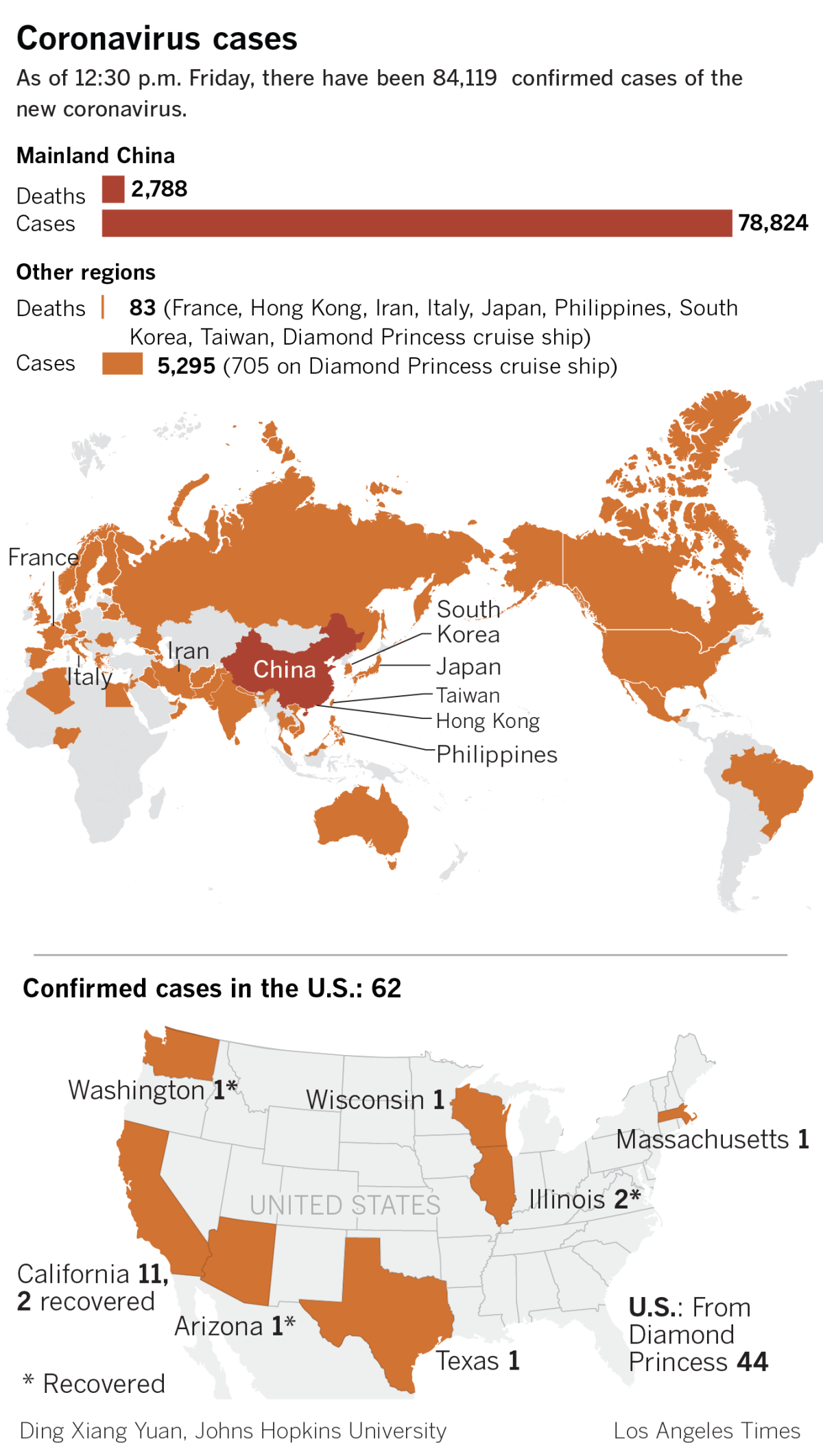
During a normally joyful holiday — often the only time of the year that extended families are all in one place — people spoke of hoarding food instead of feasting on freshly made delicacies. There was resentment and tension. One person on Weibo alluded to negative comments about Wuhan by people from other regions.
“We are living in a closed city. We can’t buy necessities from supermarkets. Vegetables are super expensive, we can’t buy masks anywhere and we have to welcome the new year with instant noodles,” the person wrote. “Even in this condition, we are still holding up, yet we have to face hatred from you guys.”
Times staff writer David Pierson in Singapore contributed to this report.
More to Read
Sign up for Essential California
The most important California stories and recommendations in your inbox every morning.
You may occasionally receive promotional content from the Los Angeles Times.

